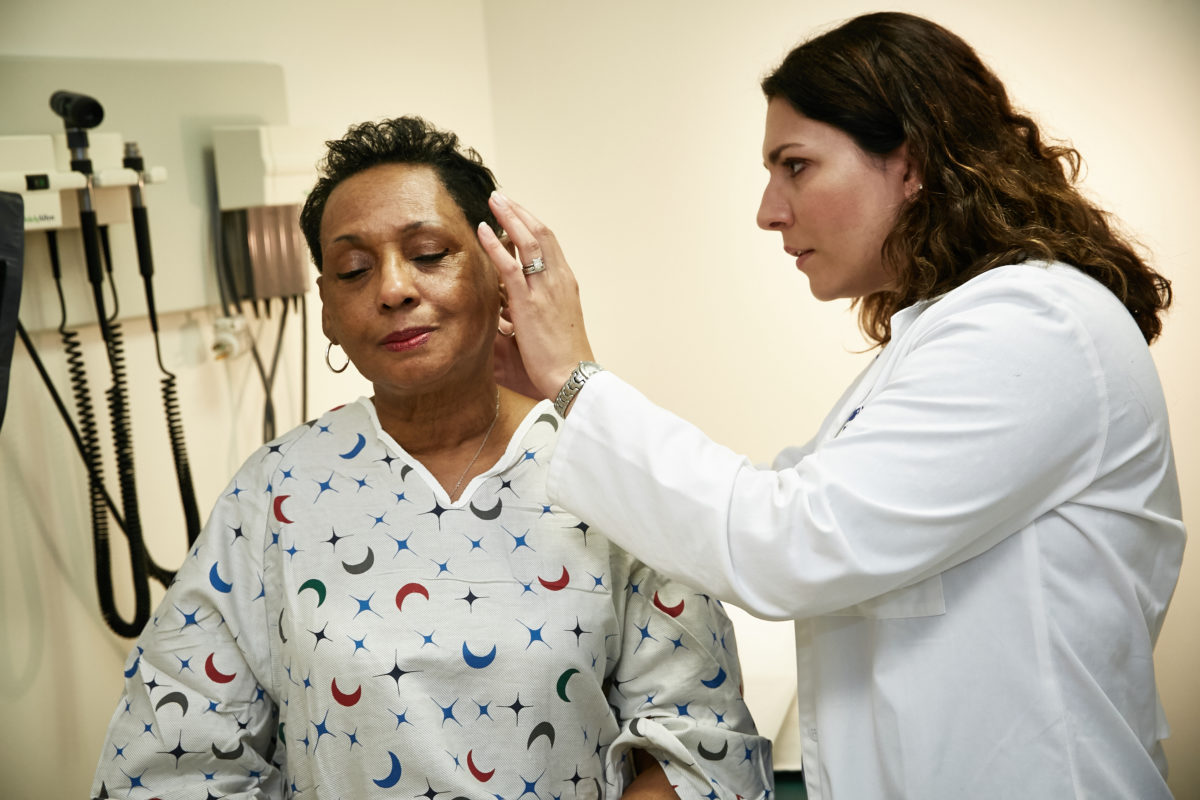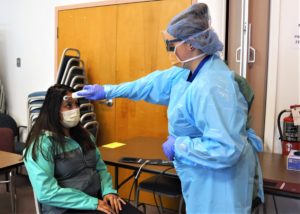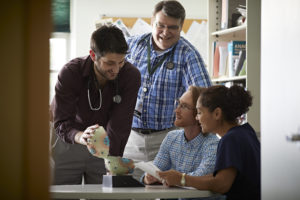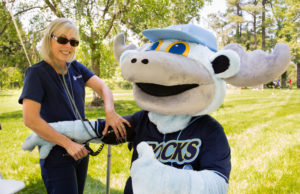Michael Palombi and his girlfriend Caroline Rossiter were worried about skin cancer. Earlier this year, both of Palombi’s parents were treated for early-stage melanoma. Rossiter’s mother and older brother have been diagnosed, too.
“And I have this spot above my lip,” she said. “It comes and goes but it never really heals. Sometimes, it bleeds.”
So the Pike Creek couple signed up for the annual free skin cancer screening at the Helen F. Graham Cancer Center & Research Institute. They were glad they did.
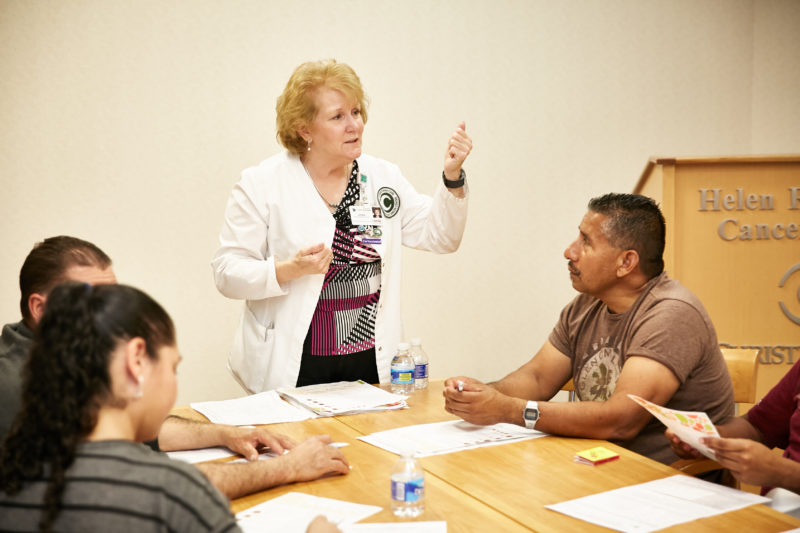
Both were examined by dermatologists and referred for follow-up visits. The doctor who saw Rossiter shared her concern regarding the spot on her face. Palombi’s doctor found a suspicious mole on his stomach.
“How often do we check out our stomach?” he said. “This visit may have saved my life.”
For the past 26 years, the Graham Cancer Center at Christiana Care Health System and the Academy of Dermatology have partnered to offer screenings to help people get diagnosed early, when melanoma is highly curable. In all, 186 individuals were screened at the event May 25-26 at the Graham Cancer Center. Of that number, 84 were referred for follow-up visits.
Rossiter, 42, visited tanning booths in her youth, which dramatically increases the risk of skin cancer, according to the American Cancer Society. Both she and Palombi, 46, have a family history of melanoma.
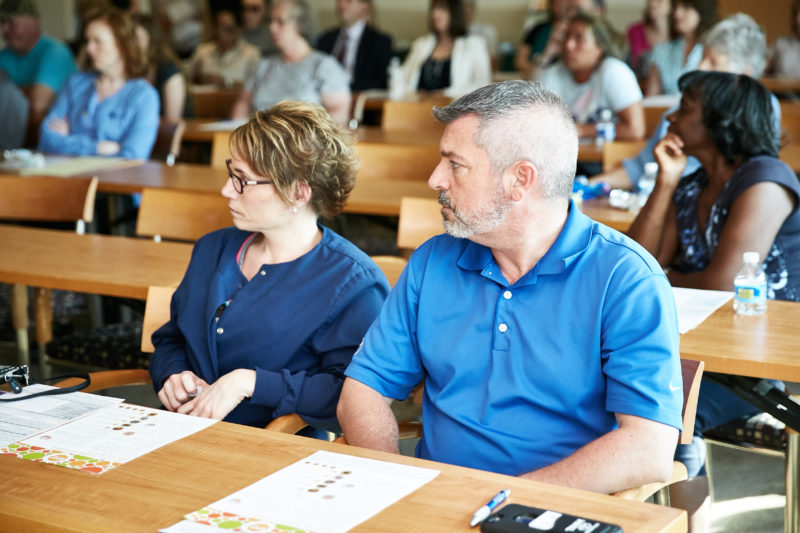
“Early detection is important, because melanoma is highly treatable in its earliest stages,” said Nora Katurakes, RN, MSN, OCN, manager of Community Health Outreach and Education at the Graham Cancer Center. “Melanoma also is highly preventable, which is why children should always wear sunscreen — and learn to reapply it often.”
Other ways to protect skin from harmful UV rays include:
- Stay in the shade between 10 a.m. and 4 p.m., when the sun is strongest.
- Wear clothes that cover your arms and legs, and a wide-brim hat.
- Choose sunglasses that also block sun from the side and offer UVA and UVB protection.
- Wear sunscreen and lip balm with an SPF of 15 or higher.
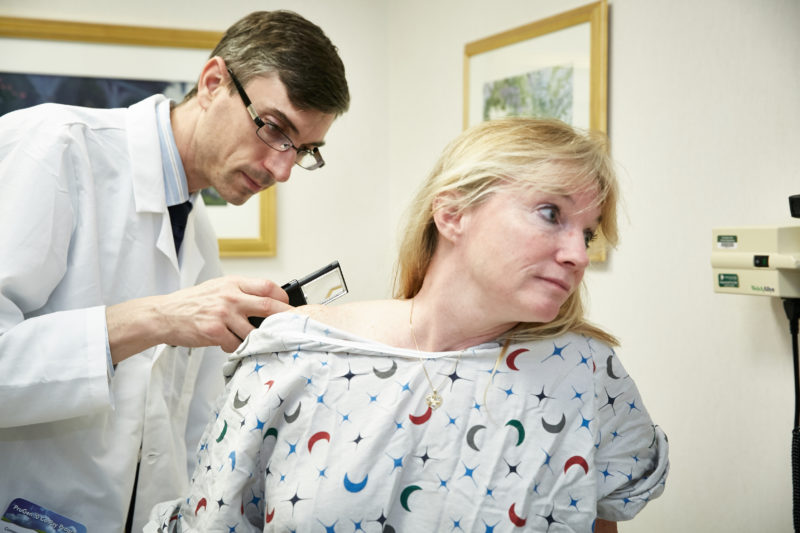
Lisa Carr, 52, of Wilmington, was alarmed by a spot on her back that appeared about two years ago. She suffered severe sunburns as a child, which increases her risk of melanoma. “I have fair skin and sunburned dozens of times when I was younger,” she said. “I put on baby oil and fried so I could fit in.”
The dermatologist who examined Carr found two suspicious areas: the spot on her back, plus a mole on her ankle.
“I thought I was aware of what was going on with my skin, but I never looked at my lower legs,” she said.
Barbara Smith-Little, 70, is African- American and has had sensitive skin for more than 20 years. “People of color aren’t immune to skin cancer, and I have a few spots that I want to get checked out,” she said.
Smith-Little, of New Castle, was reassured after her exam that she doesn’t have signs of skin cancer. “I’m fine, although my doctor encouraged me to cover my arms and stay out of the sun,” she said.
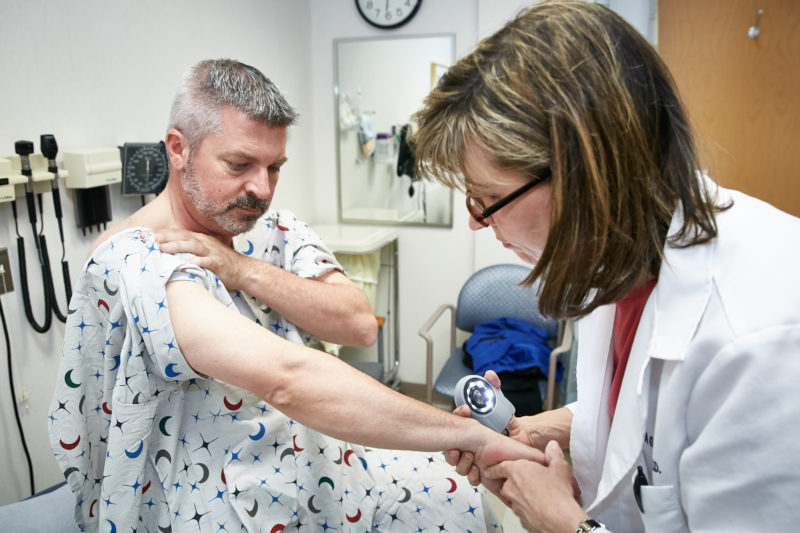
Outreach and education workers from the Graham Cancer Center stressed that thorough, head-to-toe exams are essential in detecting changes in moles and other signs of skin cancer. That includes looking at the scalp and spaces between fingers and toes. Use a hand mirror to check the buttocks, backs of legs and genitals.
Health care providers who volunteered their time and expertise for the screening event were: Daniella Benson, PA-C; Michele Compton, PA-C; Gwen Dalphon, PA-C; Matthew Hanson, M.D.; Helen Mashek, M.D.; Rachel Neumoyer, NP; Eric Oliet, M.D.; Lori Spencer, M.D.; Peter Panzer, M.D.; and Cynthia Webster, M.D. Moving for Melanoma of Delaware also was a partner for the event.
